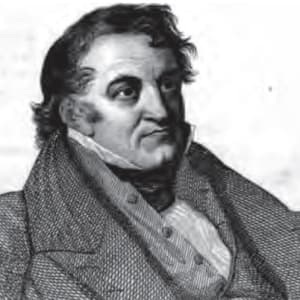
J.C.L. Simonde de Sismondi
Jean-Charles-Léonard Simonde de Sismondi was a Swiss historian and political theorist best known for his writings on the dangers of unregulated capitalism.
Synopsis
Jean-Charles-Léonard Simonde de Sismondi was born on May 9, 1773, in Geneva, Switzerland. Over the course of his career, Sismondi wrote histories of Italy and France, as well as influential texts on the subject of political economy. His ideas regarding the dangers of unchecked capitalism influenced both Karl Marx and John Maynard Keynes. Sismondi died in Chêne, Switzerland, on June 25, 1842.
Early Life
Jean-Charles-Léonard Simonde de Sismondi was born on May 9, 1773, in Geneva, Switzerland. Well educated in a literary family, Sismondi initially chose to pursue a career in business. As a young man, he went to work as a bank clerk in Lyon. Sismondi and his family were forced to relocate, however, at the outbreak of the French Revolution. They traveled to England, where they remained for a period of eighteen months before returning to Geneva. Fearing the influence of the Revolution in Switzerland, the entire family departed from Geneva, settling at a small farm in Tuscany.
Writing Career
It was while cultivating the family land in Tuscany that Sismondi embarked on his career as an author and intellectual. His experiences as a farmer directly inspired his first book, Tableau de l'agriculture toscane (Picture of Tuscan Agriculture), published in 1801. Sismondi returned to Geneva after completing the manuscript in 1800. The success of this publication launched his career as an author.
Sismondi is best known for his work on history and political economy. In 1803, he published Traité de la richesse commerciale, his first work on the subject of political economy and another professional success. He then began work on the 16-volume opus Histoire des républiques italiennes du moyen âge (History of the Italian Republics in the Middle Ages), published between 1809 and 1818. In this work, Sismondi argued that the origins of modern European culture lay in the medieval Italian free cities. The argument spurred the Italian national Risorgimento movement. A supporter of Napoleon, Sismondi completed 26 volumes of a history of France.
Political Positions
At the beginning of his career, Sismondi was a devoted follower of Adam Smith. As his thinking evolved, however, he broke with Smith's belief in laissez-faire economic policies. By 1819, Sismondi was writing in support of government regulation of competition. His 1819 Nouveaux principes d'économie politique (New Principles of Political Economy) warned against the pitfalls of unchecked capitalism and advanced new theories of economic crisis. He also coined the term "class struggle" to describe the increasing friction between the bourgeoisie and the working class. Despite these critiques of capitalism, however, he maintained support for the basic concept of private property. Sismondi's writing during this period of his intellectual development influenced the thinking of Karl Marx and John Maynard Keynes.
Personal Life and Death
Sismondi married Jessie Allen, a Welsh woman from a well-connected family, in 1819. The two remained married for the rest of Sismondi's life. He died in Chêne, near Geneva, on June 25, 1842.



